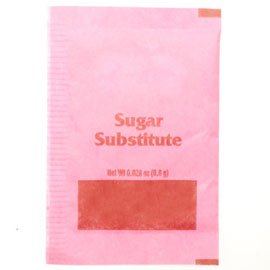The Artificially-Sweetened Truth
Posted: Jun 11 in Post-Bariatric Diet by Staff
 New research shows why artificial sweeteners may not be any better for you
New research shows why artificial sweeteners may not be any better for you
Though news of Mayor Bloomberg’s New York City soda ban has been widely circulating in the media, steering clear of soft drinks should be nothing new for Macon LAP-BAND patients. In addition to devastatingly-high sugar content, carbonated drinks of all kinds can stretch the pouch created by the LAP-BAND, resulting in serious discomfort.
This means that LAP-BAND patients have already gone a step further than Bloomberg’s ban by eliminating all fizzy drinks, including diet sodas. Though critics of Bloomberg’s proposal have pointed to many different glaring omissions, like continuing to allow convenience stores to sell large sugary drinks and doing nothing about sweetened alcoholic beverages, new research has shown that merely focusing on sugar content in drinks may not be enough. Artificial sweeteners of all kinds, from those in diet sodas to the Splenda you may be putting in your coffee can be detrimental for our health as well.
Are Artificial Sweeteners Bad?
Scientific opinion of the impacts of artificial sweeteners has long gone back and forth. Though many experiments have associated them with negative health outcomes, like a heightened risk of heart attack and stroke or bigger waistlines, these findings are frequently refuted or maligned by murky causality. Many people believe that artificial sweeteners are bad for human health, but the unfortunate reality is that we often don’t fully understand the health implications of a certain food until decades of consumption make them clearer.
Artificial sweeteners function by activating proteins on the surface of the tongue that serve as sweetness receptors, tricking our brains into thinking we’ve actually eaten sugar. However, a new study shows that this may affect our brains in another way that helps to explain why consumption of diet sodas and their artificially-sweetened ilk can often lead us to consume more calories in other parts of our diets.
The Study
Researchers studied the impact of artificial sweeteners on the brain activity of 24 young adults. Half of them habitually consumed diet soda, drinking at least one sugar-free beverage each day, while the remaining participants regularly avoided diet soda. While scanning their brains, researchers fed each participant a stream of water, which was alternately sweetened with natural and artificial sweeteners.
As the artificial sweetener consumption rose, researchers saw diminished activation of a region known as the caudate head. This area of the brain is associated with food motivation and the reward system, and reduced activity in this area is linked to a higher risk of obesity. When functioning normally, the brain uses a learned association between sweet taste and caloric intake, regulating consumption based on the amount of sweetness. But sweet foods that don’t deliver calories confuse the brain, making this regulator ignore sweet tastes when attempting to predict the energy content of a food.
The Takeaway
As noted, most studies about the detriments of artificial sweeteners are often refuted, and the small scale of this research leaves plenty of opportunity for criticism from other researchers. However, the results of this study could show that those who doubt the healthiness of artificial sweeteners may be onto something. Though artificially-sweetened beverages will help you stay away from the real thing, you may be unconsciously compromising that benefit by compensating with calories in other parts of your diet. As a patient of LAP-BAND, your continued weight loss success hinges on maintaining a healthy diet. While we don’t yet know the whole truth about artificial sweeteners, there is a big chance that you might not be able to afford the risk.
